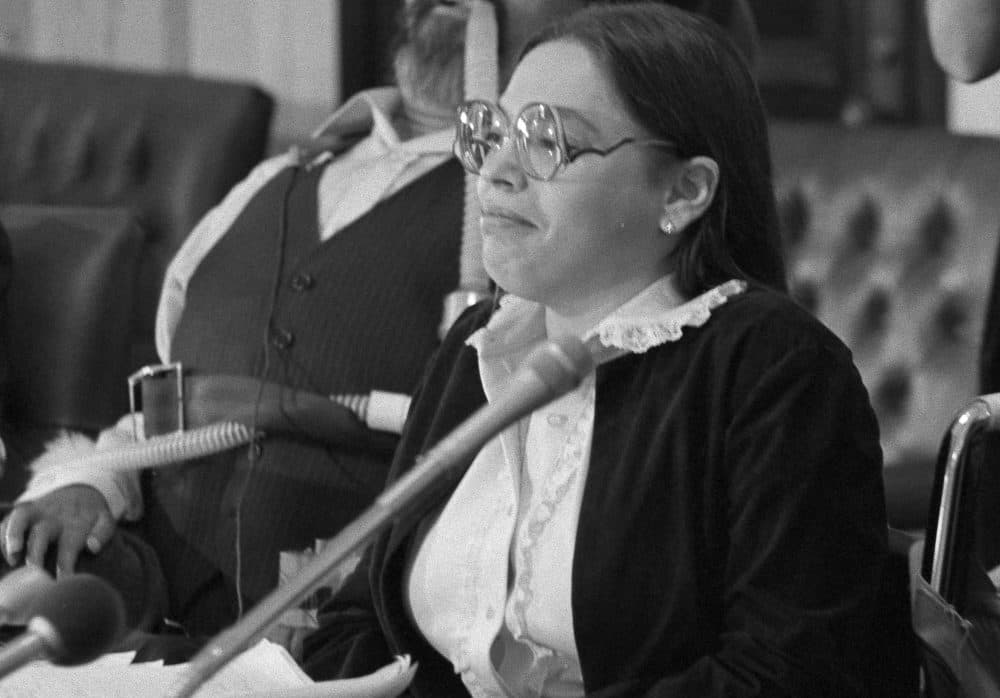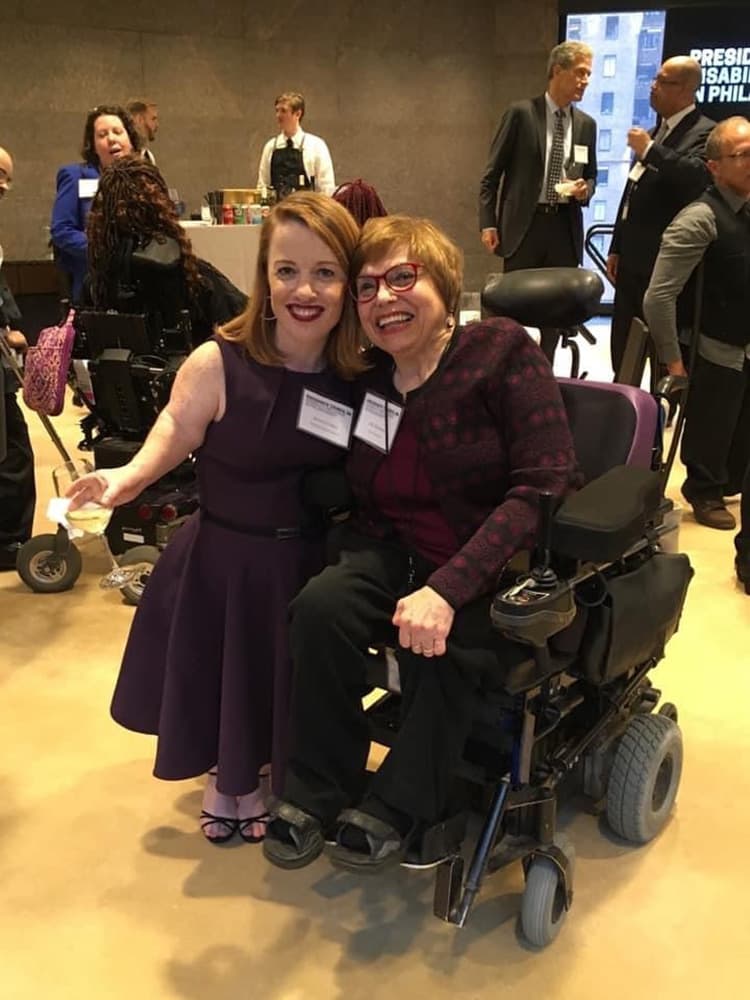Advertisement
What the next generation of disability activists can learn from Judy Heumann


The woman known as the mother of the disability rights movement is being remembered as a civil rights icon. Judy Heumann's years of advocacy and lobbying ultimately led to the federal Americans With Disabilities Act. She passed away this weekend at the age of 75.
Rebecca Cokley, U.S. disability rights program officer with the Ford Foundation, knew Heumann personally. Cokley regales Heumann's life of advocacy and service to the disabled community and the importance of young people continuing the work she started.
"I think coming out of youth activism herself, it really reminded her that no movement survives without the labor and the passion of its young people," Cokley says. "The disability rights community, like every other civil rights community, has to really cultivate that and develop that among our youth."
Full interview transcript:
Deepa Fernandes: Judy Heumann, the woman known as the mother of the disability rights movement, died over the weekend in Washington, D.C. She was 75. Mourners are remembering Heumann as a civil rights icon. Her years of advocacy and lobbying ultimately led to the federal Americans with Disabilities Act. Here she is speaking on C-SPAN last year about the impact of the legislation, more than 30 years later.
(Soundbite of Judy Heumann on C-SPAN: We need to be proud of who we are, that part of who we are, not the totality of who we are, is that we have one or more different types of disabilities. I think that's really a significant outcome of the ADA that we ourselves see ourselves as being a part of society.)
Fernandes: Let's bring in a member of the disability rights community, someone who knew Judy Heumann personally, and that's Rebecca Cokley. She's a U.S. disability rights program officer with the Ford Foundation. Rebecca, welcome to Here & Now.
Rebecca Cokley: Thank you so much.
Fernandes: So disability rights have come so far over the course of Judy's lifetime, even though there's still so much more work to do. But what did the world look like that Judy was born into? How was she not included?
Cokley: I think Judy's story of exclusion and segregation really starts with her origin. I mean, as a young child with polio, she was denied the right to go to kindergarten with her peers because her teachers believed that her wheelchair would be a fire hazard.
Fernandes: And her parents fought for her individually to be able to go to school. Yet, Judy herself became an activist. She could have easily tried to make things better just for herself, but she saw herself as part of a diverse community. What propelled her into disability rights activism?
Cokley: You know, I think for Judy, you can't separate the fact that her parents were survivors of the Holocaust from her own personal advocacy and really raised her with the idea that people with disabilities deserve to be included, deserve to be at the table. And, you know, it led to her desiring actually to become a kindergarten teacher and then being denied. And I think and in true disability fashion, years later, she was appointed by President Clinton to serve as the Assistant Secretary for the Office of Special Education and Rehabilitative Services. So she was put in charge of education for kids just like her.
Fernandes: And just to be clear, not only was she denied the right originally to attend kindergarten as a five-year-old herself, later, when she wanted to be a kindergarten teacher in college, she was also given a similar reason for not being able to go to college, right?
Cokley: Absolutely. People with disabilities were seen as uneducable. And Judy and her colleagues in the 1970s really fundamentally paved the path for all of us that came after in saying colleges not only should not only be a goal for you, but college and career is a right.
Fernandes: And she wrote her own story. And folks should definitely read that. She had a podcast. She was really out in the world. One of her concerns that I know she talked to you a lot about was that younger disabled people today are not as involved with the disability community or the movement because they're part of what's known as the ADA generation. They've grown up having this act that has made them a little more included. It's something you've been working, trying to change as well. Why was it important for Judy and for you, for young Americans to be part of the working in calling out ableism?
Cokley: This was something that was very important to Judy. And, I mean, given her activism in California, where she helped start the State Youth Leadership Forum for Young Leaders with Disabilities, and then moving to Washington was actually the last thing that she did in the Clinton administration, was fund a national leadership program for young people with disabilities. She was always cognizant that we had to leave the door open for those coming behind us and pave a path to make things more equitable. And I think coming out of youth activism herself, it really reminded her that no movement survives without the labor and the passion of its young people and that the disability rights community, like every other civil rights community, has to really cultivate that and develop that among our youth.
Fernandes: I wonder if you can tell us what you learned from Judy about how to fight for the world that you want to see for your own children?
Cokley: It's funny that you mention that. I met Judy when I was 6 years old, and I met her on the back of my godmother's wheelchair riding through Berkeley to a disability rally. And my children grew up knowing Judy as basically their D.C. Jewish grandma. Watching my children look at her and have the understanding that every day that they go to school, it was because Auntie Judy and her friends fought to make that happen. It has trained them and really planted a seed that when they see intolerance, when they see discrimination, even as children in elementary and middle school, not only should they say something, they have a responsibility to say something.
Fernandes: Remembering the civil rights leader, Judy Heumann, who passed away this weekend in Washington, D.C., is Rebecca Cokley, herself a disability rights activist and the U.S. disability rights program officer with the Ford Foundation. Rebecca, thank you so much for sharing your memories.
Cokley: Thank you so much for having me.
This segment aired on March 6, 2023.